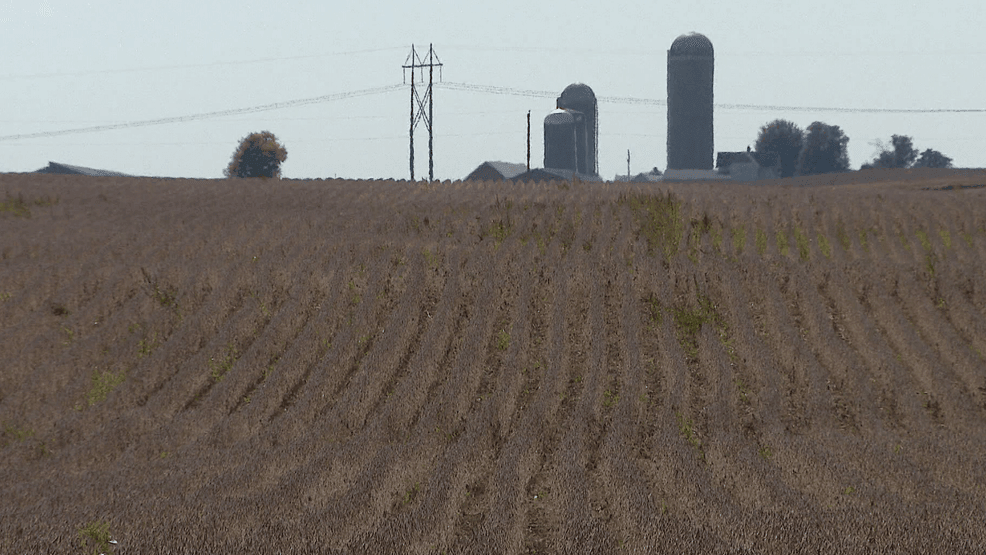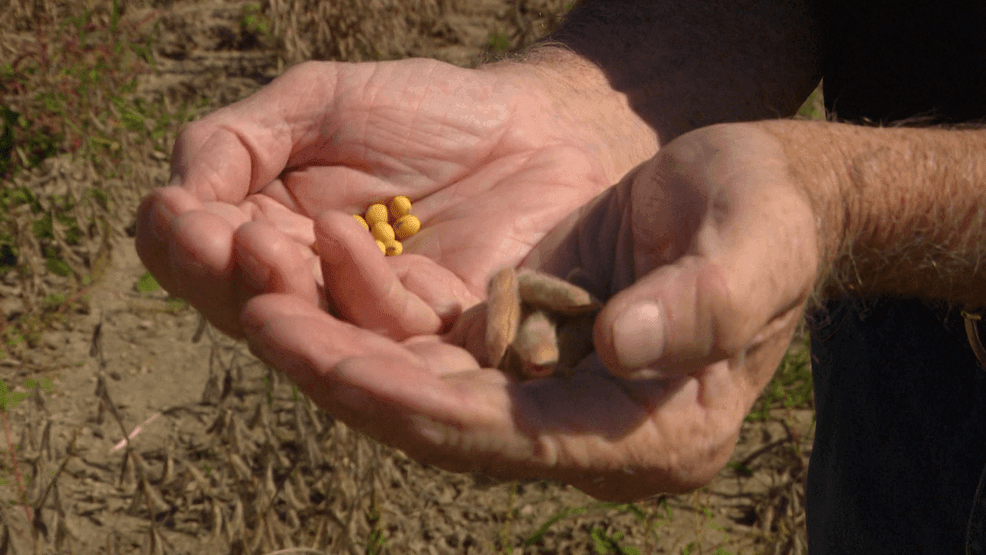MARIBEL (WLUK) — Wisconsin crop farmers are beginning to feel the effects of tariffs on their income. Farmers may just be getting underway with harvesting their crops, the market to sell has significantly shrunk now that China has refused to buy U.S. yields.
Maribel farmer Michael Slattery is giving his soybeans a couple more weeks before he harvests them.
In that time, he has another issue to figure out, where he’s going to sell them.
“Prior to 2017, China was importing close to 70% maybe a little more than 70% of the soybeans we exported out of this country, we cannot readily replace China,” Slattery said.
Slattery said at this time last year, China had bought about 6 million metric tons of soybeans from the U.S.
This year, that’s dropped to zero.

Wisconsin crop farmers are beginning to feel the effects of tariffs on their income. Farmers are just beginning to harvest their crops, but the market to sell has significantly shrunk now that China has refused to buy U.S. yields. Sept. 29, 2025 (WLUK/Lauren Pieczynski).
China is buying soybeans from other parts of the world, like South America, to avoid President Donald Trump’s tariffs
Meanwhile, U.S. farmers like Slattery are feeling the pinch.
“I’m going to face losses. I don’t want to face losses, that’s eating into my capital, it’s eating into my equity. But that’s what farmers are going to face,” Slattery said.
Slattery expects to lose around $10,000 each year.
On top of this, Slattery expects to have a lot of extra soybean inventory, something he plans to just sit on it.

Wisconsin crop farmers are beginning to feel the effects of tariffs on their income. Farmers are just beginning to harvest their crops, but the market to sell has significantly shrunk now that China has refused to buy U.S. yields. Sept. 29, 2025 (WLUK/Lauren Pieczynski).
Last week, Trump admitted U.S. farmers are already seeing losses this year from his tariffs on China.
To help alleviate the pain, he plans to offer payments to farmers hurt by the economic uncertainty.
“We’re going to take some of the tariff money, relatively small amount but a lot for the farmers and we’re going to help the farmers out a little bit because during this transition period a period where we’re taking in incredible amounts of money, we’ll have a little bit of a short fall with the farmers until the tariffs kick in,” Trump said.
However, that may not be enough for Wisconsin farmers.
“[It] isn’t what farmers want. We want to receive our money from the marketplace and let that process work out,” Wisconsin Farmers Union President Darin Von Ruden said.
Von Ruden said many farmers worry about trying to rebuild the market.
China is typically the largest buyer of U-S crops — that has now moved to Mexico and Canada.
“There’s a real fear out there on what those markets going to be. Certainly the price right now is not at a level that hardly any farmers can be making money on it,” Von Ruden said.
With many unknowns, replacing China will likely be an uphill climb.
The Wisconsin Farmers Union expects China to eventually buy some soybeans from the U.S., but it won’t be nearly as much as in the past.
